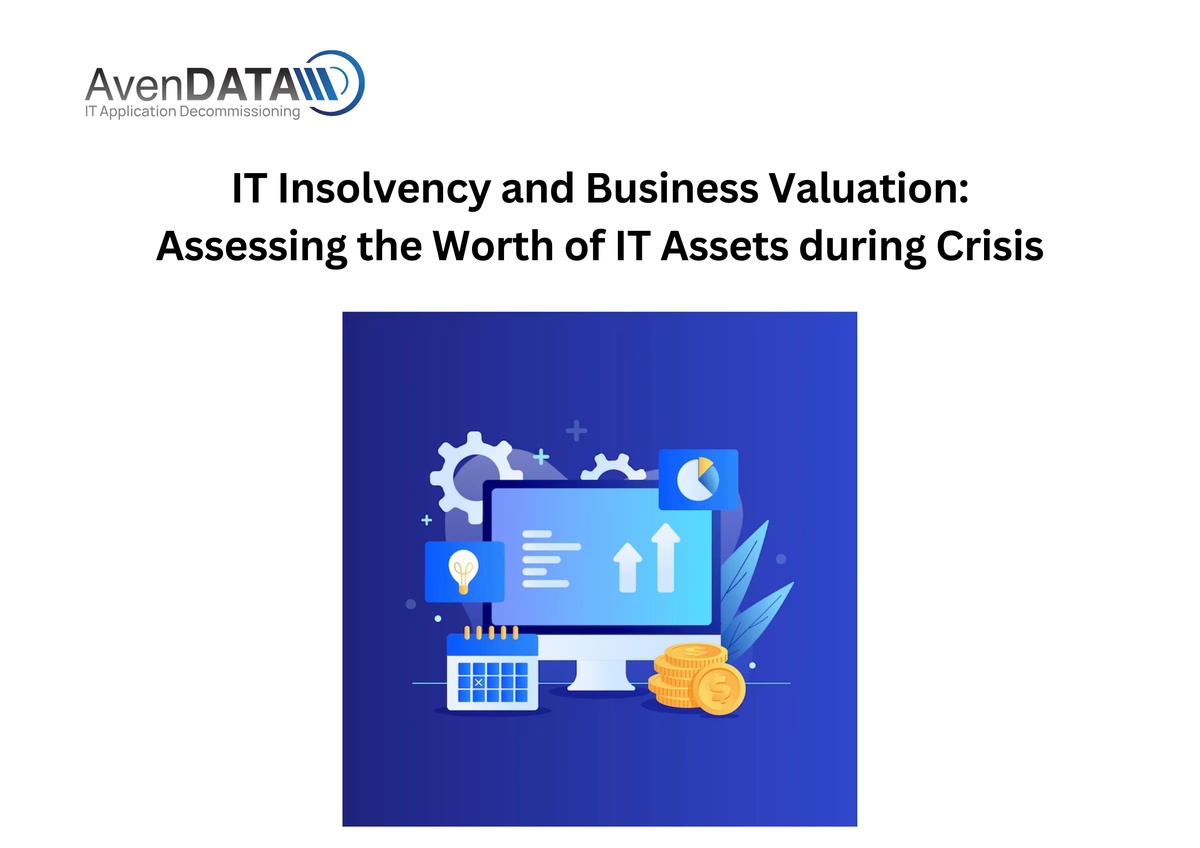Introduction: When a company faces financial turmoil or insolvency, evaluating the worth of its assets becomes crucial for stakeholders, including investors, creditors, and potential buyers. Among these assets, IT infrastructure and systems play a significant role in determining a company’s value. This blog delves into the impact of IT insolvency on business valuation, highlighting the challenges, considerations, and best practices for assessing the worth of IT assets during times of crisis.
Understanding IT Insolvency and Business Valuation: IT insolvency refers to the inability of an organization to continue its IT operations due to financial, operational, or security-related issues. When assessing the value of a business facing insolvency, the worth of its IT assets is a critical component. IT assets include hardware, software, data, infrastructure, and intellectual property that contribute to the organization’s operational capabilities and competitive advantage.
Challenges in IT Asset Valuation during Insolvency:
Rapid Technological Change: IT assets quickly become outdated due to the fast-paced nature of technology. During insolvency, valuing depreciated or outdated IT assets accurately poses a challenge, as their market value may significantly differ from their book value.
Data Integrity and Recovery: Insolvent organizations may face data loss or compromise, impacting the value of their IT assets. The ability to recover critical data and ensure its integrity is essential for an accurate valuation.
Vendor Contracts and Licensing: Valuating IT assets requires considering vendor contracts and software licensing agreements. Insolvency may lead to the termination or renegotiation of these contracts, affecting the value of the assets involved.
Cybersecurity and Compliance Risks: IT insolvency can increase the risk of cybersecurity breaches and non-compliance with data protection regulations. These risks need to be assessed and factored into the valuation process to determine the potential impact on the value of IT assets.
Best Practices for IT Asset Valuation during Insolvency:
Engage Expertise: Seek professional assistance from IT asset valuation experts who have experience in assessing the worth of technology assets during financial crises. Their expertise can help provide a comprehensive and accurate valuation.
Assess the Lifespan of IT Assets: Evaluate the remaining lifespan and usability of IT assets to determine their value. Consider factors such as technological advancements, obsolescence risks, and the potential for upgrades or repurposing.
Perform Data Recovery and Integrity Checks: Prioritize data recovery and integrity checks to ensure that critical information is intact. This process helps preserve the value associated with data assets and minimizes potential losses during insolvency.
Review Licensing and Vendor Contracts: Review software licensing agreements and vendor contracts to understand any potential implications on asset value. Consider the transferability of licenses and contractual obligations during the insolvency process.
Evaluate Cybersecurity Measures: Assess the effectiveness of cybersecurity measures in place to mitigate risks and protect IT assets. Evaluate any potential vulnerabilities or non-compliance issues that may impact asset value.
Consider Intellectual Property: Identify and assess the value of any intellectual property associated with IT assets, such as patents, trademarks, or proprietary software. Intellectual property can significantly influence the overall value of the business.
Analyze Market Demand and Trends: Analyze market demand and technological trends to determine the potential resale value of IT assets. Evaluate the potential interest from buyers or investors in acquiring specific IT assets, which may impact their overall value.
Conclusion: During times of IT insolvency, accurately assessing the value of IT assets is crucial for stakeholders involved in the business valuation process. Considering the challenges of rapid technological change, data integrity, vendor contracts, and compliance risks is essential. Engaging expertise, evaluating remaining lifespan, performing data recovery checks, reviewing licensing and vendor contracts, assessing cybersecurity measures, considering intellectual property, and analyzing market demand are key best practices for an accurate valuation. By adopting these practices, stakeholders can make informed decisions regarding the worth of IT assets, potentially mitigating losses and maximizing value during times of crisis.
#AvenDATA #Legacysystems #ITlegacysystems #ITlnsolvency #legacydata


No comments yet